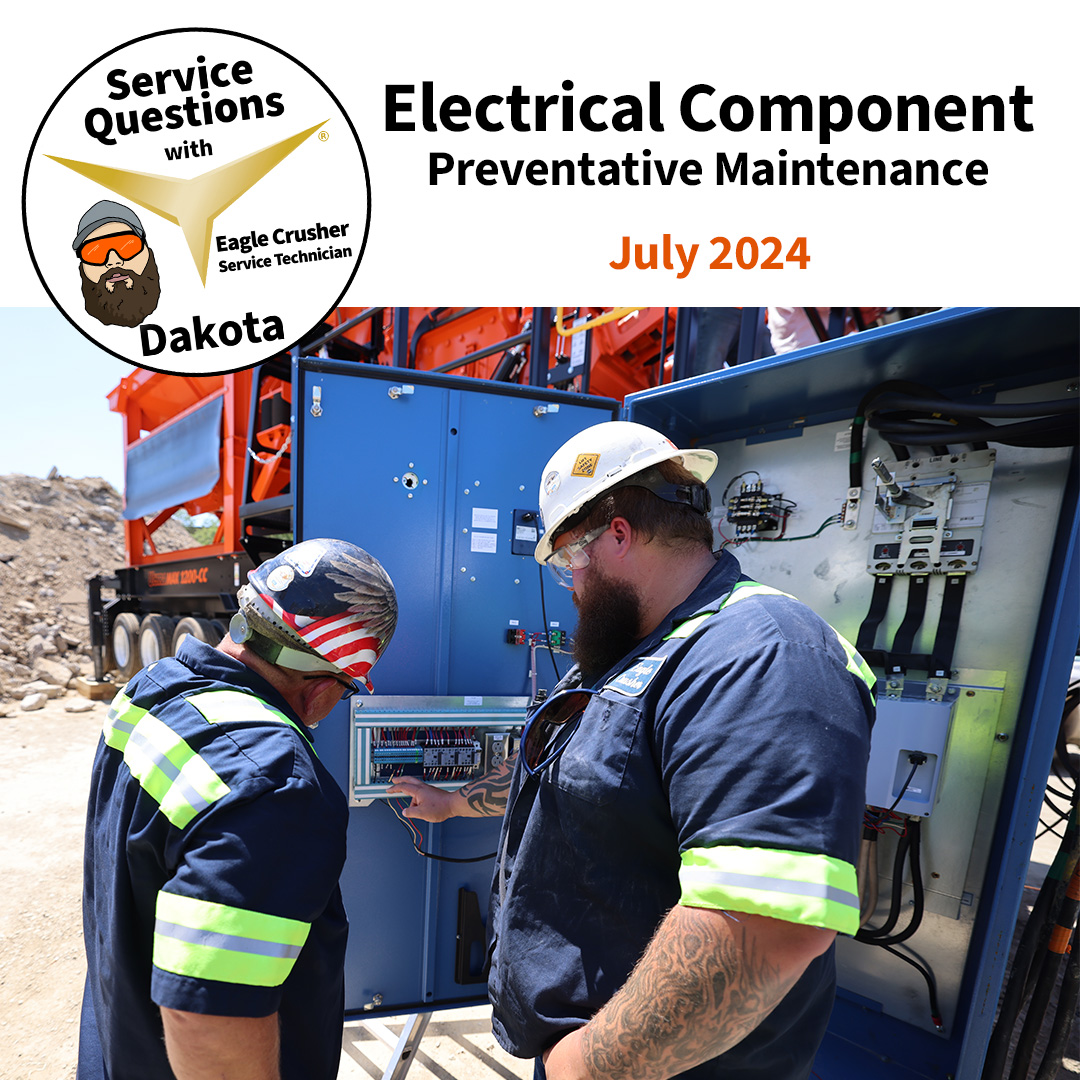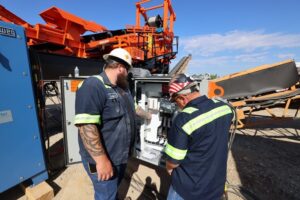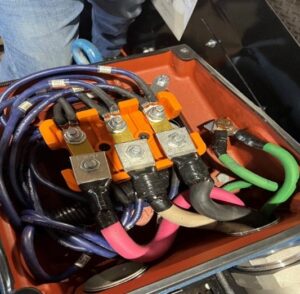Service Questions: Electrical Component Preventative Maintenance

Service Questions with Dakota: Electrical Component Preventative Maintenance
Welcome to our “Service Questions” series, your go-to blog for all things related to the upkeep and efficiency of rock crushers. As a group of seasoned service technicians, we’ve seen firsthand how critical regular preventative maintenance can be to ensure your rock crusher runs smoothly and efficiently. In this blog, our latest addition to the “Service Questions” team, Eagle Crusher Service Technician Dakota, will share valuable insights, tips, and best practices for maintaining the electrical systems of your rock crusher, helping you avoid unexpected breakdowns, reduce downtime, and extend the lifespan of your equipment.
Keep Your Electrical Components Dry
It is important to keep your electrical connections dry to prevent corrosion. The corrosion of connections could cause wires to break, short out, drop phases, and other issues. That dropped phase could prevent your electric motor from having 3 phases and instead it could single phase out. That would trip the breaker and cause you unscheduled downtime.
Additionally, you should keep your cabinet doors closed to prevent moisture and dust from building up or puddling up in the electrical cabinet. Try to keep debris out of the relay contacts on the panel doors. If debris does get into the relay contact, it could get stuck, which would prevent the machine from running. To remove the debris, remember to deenergize and lock out / tag out before servicing. Check for residual energy before using compressed air to remove any debris. Additionally, you can put a small amount of dielectric grease around the wire going into the relay contacts to reduce the moisture and debris from entering.

Check on Your Connections
Applying a little bit of dielectric grease to the main circuit breaker lugs will help prevent the seizure or stripping of the main lug terminals. Make sure the connections on starters and overload circuit breakers are secure to prevent wires from arcing and causing your overload to trip.
Make sure the exposed connections are not touching with other phases. For example, if the L1 cable is contacting the L2 cable, it would cause the motor to single phase and will fault the soft start.

An example of a proper hook up.
Answering More of Your Questions
While we know these blogs cover just the surface of rock crusher preventative maintenance, the most important piece of information we want you to take away is knowing who to ask more questions. At Eagle Crusher, we have a wide network of team members ready to answer your questions. From the parts department to the service team, from the sales team to our authorized dealers, we have an abundance of knowledge.
The other part to take away is implementing a consistent preventative maintenance schedule for the electrical components of your rock crusher is not just best practice but a necessity for ensuring optimal performance and longevity of your equipment. As service technicians, we can’t stress enough the importance of staying proactive rather than reactive when it comes to maintenance. By following the tips and guidelines shared in this blog, you’ll be well on your way to achieving rock-solid reliability and productivity from your rock crusher. Stay tuned for more insights, like next month when Mark covers belt preventative maintenance, and happy crushing!



